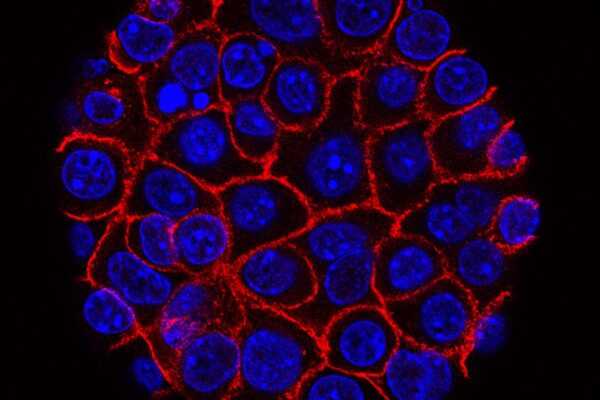Positive Data in Pancreatic Cancer Pave Way for Pivotal Test of Revolution Medicines Drug
July 17, 2024
Source: https://medcitynews.com/author/fvinluan/
 342
342
Revolution Medicines drug RMC-6236 increased progression-free survival in patients with advanced cases of pancreatic ductal adenocarcinoma. With these results, the biotech is preparing for a Phase 3 clinical trial in this indication, the most common type of pancreatic cancer.
By Frank Vinluan

Pancreatic cancer remains one of the toughest cancers to treat, but Revolution Medicines has data from an early-stage study showing its experimental treatment helped patients live longer without their disease worsening. With these encouraging results, Revolution said Monday it is preparing to proceed to a pivotal clinical trial enrolling patients with advanced cases of the most common type of pancreatic cancer.
Revolution develops therapies that target the RAS family of proteins, validated but elusive targets for cancer drug research. Mutations to these proteins lead to the uncontrolled cell growth that happens in a variety of cancers. The most advanced program from Redwood City, California-based Revolution is RMC-6236. This small molecule is being evaluated in a Phase 1/1b study enrolling patients with advanced RAS mutation-driven solid tumors, including pancreatic cancer.
Chemotherapy is the primary treatment for pancreatic ductal adenocarcinoma (PDAC), the most common type of pancreatic cancer. Of the approximately 60,000 new PDAC cases annually, 92% are driven by RAS mutations, Revolution said in an investor presentation. The data reported Monday are from a group of 127 patients with PDAC who received RMC-6236 as a second line of therapy. Revolution reported that treatment with its drug led to a median progression-free survival of 8.1 months in patients with KRAS G12 mutations. In patients with a broader range of RAS mutations, progression-free survival in this second-line setting was 7.6 months.
Revolution’s open label Phase 1/1b clinical trial did not have a chemotherapy arm so there is no head-to-head comparison with the standard of care. But the company said its review of publicly available results from clinical trials of chemotherapies for previously treated PDAC indicates that progression-free survival ranges from 2 months to 3.5 months. Treatment-related adverse events reported in the Revolution study include rash; stomatitis, which is redness and swelling in the mouth and lips; reduced appetite; diarrhea; and lower platelet counts. No patients discontinued the drug.
Revolution said it plans to start a Phase 3 study in PDAC later this year. The clinical trial will compare a once-daily 300 mg dose to the physician’s choice of chemotherapy as a second-line treatment for PDAC. The main goals will be measuring progression-free survival and overall survival.
Amgen won the first FDA approval of a KRAS inhibitor, the KRAS G12C-targeting drug Lumakras. Bristol Myers Squibb markets Krazati, a drug that blocks the same target. The approvals of both drugs cover non-small cell lung cancer. Revolution is also developing RMC-6236 for this type of cancer. Another RAS protein, SHP-2, is the target of a BMS drug whose rights were acquired from BridgeBio Pharma. Meanwhile, Frontier Medicines has reached Phase 1/2 clinical testing with FMC-376, a small molecule intended to treat solid tumors carrying the KRAS G12C mutation.
In a note sent to investors Monday, Leerink Partners analyst Jonathan Chang wrote that Revolution is expected to release a data update for its lead program in NSCLC in the second half of this year. While the field of RAS drug development is competitive, Chang said Revolution’s update is an important step forward for the company’s technology platform.
Last year, Revolution acquired EQRx in an all-stock transaction largely to get its hands on EQRx’s $1 billion in cash. In a Monday regulatory filing, Revolution said it projects having enough capital to support the company into 2027.
Public domain image by the National Cancer Institute
By editorRead more on
- Gan & Lee Pharmaceuticals’ new PROTAC drug GLR2037 tablets have been approved for clinical trials to enter the field of prostate cancer treatment March 3, 2026
- AideaPharmaceuticals plans to raise no more than 1.277 billion yuan through a private placement to focus on the global clinical development of innovative HIV drugs March 3, 2026
- Giant Exits! Its Star Business Acquired March 3, 2026
- Focusing on cardiovascular and cerebrovascular diseases! OpenMediLead Medical Intelligence Dual Engines Launch Internal Testing, Connecting Drug Development and Clinical Diagnosis in a Closed Loop March 3, 2026
- Innovent Biologics Announces Approval of New Indication for BTK Inhibitor “Pitubrutinib” in China March 3, 2026
your submission has already been received.
OK
Subscribe
Please enter a valid Email address!
Submit
The most relevant industry news & insight will be sent to you every two weeks.



